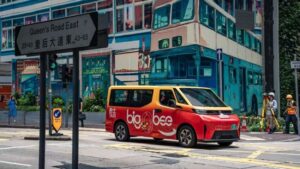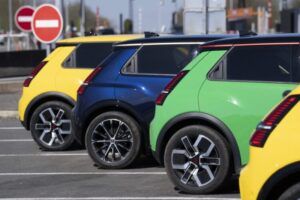Volkswagen has delivered its 1.5 millionth all-electric ID. vehicle to a customer in Vechter, Germany, marking a significant milestone for the automaker’s electric vehicle strategy.
The milestone vehicle was a black ID.7 Tourer Pro – the newest addition to VW’s electric lineup. The ID. family launched in 2020 with the ID.3 hatchback, followed by the ID.4 SUV, ID.5 SUV coupé, and the retro-styled ID.Buzz van.
VW’s electric journey hasn’t been smooth. The ID. range faced early problems with quality control, infotainment systems, and software issues that frustrated customers and critics alike.
But the company has turned things around. The ID.3, ID.4, and ID.7 now consistently rank among Europe’s top-10 best-selling electric vehicles.
Production Facilities Span Three Continents
VW operates three dedicated electric vehicle plants in Germany. The Emden facility required over €1 billion in development costs, while additional plants in Zwickau and Dresden complete the domestic production network.
International production includes facilities in Chattanooga, USA, and three Chinese plants in Foshan, Changsha, and Anting.
The company has set an ambitious target – ID. models should represent 70% of VW’s European sales by the end of the 2020s.
Several new models are coming to support that goal. The Polo-sized ID.2 and the T-Cross-replacing ID.2 X will arrive in 2026. The sub-£20,000 ID.Every1 city car is scheduled for 2027.
VW is also developing performance variants. An all-electric Golf replacement, an ID.2 GTI Clubsport, and an ID.2 R with 400bhp and Rimac-sourced in-wheel motors are reportedly in development.
Government Support Still Needed
VW board member Martin Sander celebrated the milestone while calling for stronger government support for electric vehicle adoption.
“1.5 million ID. models delivered clearly shows that Volkswagen is a pioneer in the field of electromobility,” Sander said. “This confirms that our portfolio contains the vehicles our customers need.”
However, Sander echoed concerns shared by many in the UK’s EV industry about the need for better incentives.
“A clear message and specific government incentives are needed if we are to reduce skepticism among private buyers and boost demand in this group,” he added. “Currently, the vast majority of new electric vehicles are registered to commercial customers who receive other tax breaks.”
The milestone puts VW’s electric efforts in perspective alongside the company’s combustion engine legacy. The Golf remains VW’s most successful model with over 35 million units sold since its 1974 debut.
The classic Beetle holds second place with 21,529,464 cars sold between 1938 and 2003 – a production run that spanned six decades and multiple continents.





